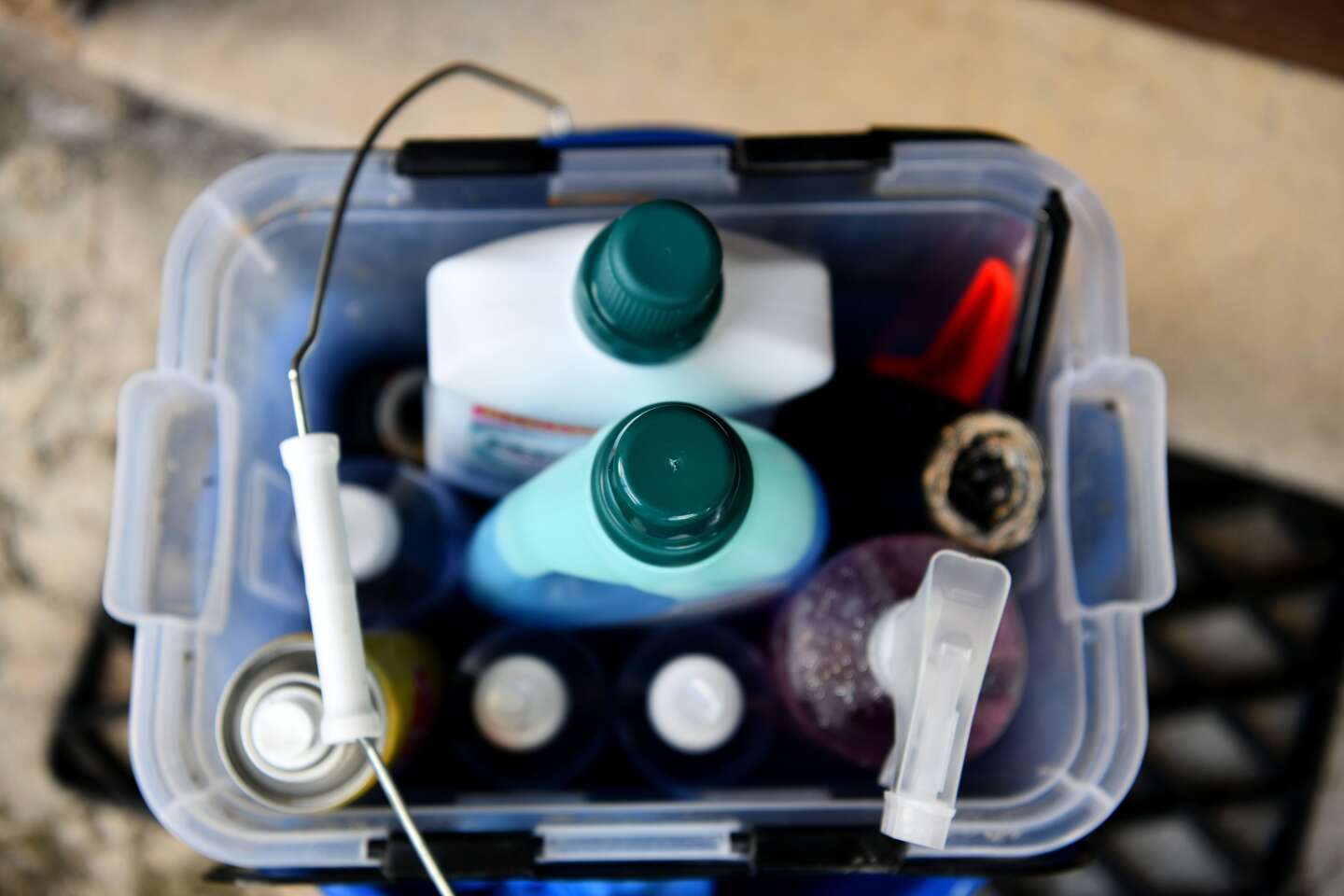


Sylvie Kimissa, 53, spends five days a week "vacuuming, lifting, polishing and scrubbing." Employed as a housekeeper at the Ibis-Batignolles Hotel in Paris since 2013, she said she "can't feel her muscles" by the end of each day. Before 2023, other unpleasant effects from her daily handling of cleaning products added to her muscular problems. "My nose would sting, it burned, and sometimes I would get dizzy. As soon as I got out of the hotel and breathed fresh air, I immediately felt better."
If Kimissa has used the past tense, it's because she no longer works for the subcontracting company she worked for last year. The new company no longer uses the same products, but instead uses "a lot of vinegar." Kimissa has clearly noticed the difference. "Is this done everywhere, or do they just figure that at Batignolles we're vocal and we're not afraid to go on strike?" she said, referring to the 22-month strike at this facility to secure a slower pace of work and higher wages.
For the 600,000 employees in the housekeeping industry, the harmful effects of exposure to cleaning products have remained a largely hidden public health problem. For François-Xavier Devetter, an economist at the Lille Center for Sociological and Economic Research and Studies (Clersé), these health issues don't get much attention because of the low-visibility and precarious economic circumstances of this professional sector, together with the reality of subcontracting. "We outsource what we consider to be secondary labor, such as cleaning," he said. "When an activity is outsourced, there's very little responsibility for employee follow-up, and medical check-ins are rare."
Carcinogenic substances
Yet scientific publications on the subject are worrying. A study published in the American Journal of Respiratory and Critical Care Medicine in 2018 estimates that daily exposure to these products has an equivalent impact on lung health to smoking a pack of cigarettes a day. "We had a sample of 6,000 cleaning professionals whom we followed for two decades," said Cecilie Svanes, study co-author and researcher at the University of Bergen in Norway. "We're talking here about the cleaning industry as a whole, which means that for some [housekeepers], the effect will be much weaker, and for others much stronger."
The products in question are made from chemicals that can be highly damaging. In particular, disinfectants, detergents and descalers emit volatile organic compounds that can cause indoor air pollution. According to a report by the French High Council for Public Health published in 2021, 91% of products tested in a study of household products emit formaldehyde, a proven carcinogen, per the International Agency for Research on Cancer. "Specific risks from exposure" were also pointed out by the Institut national de recherche et de sécurité (INRS, French National Research and Safety Institute).
You have 55.52% of this article left to read. The rest is for subscribers only.
